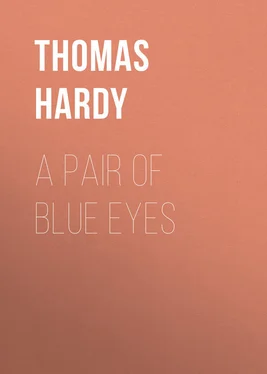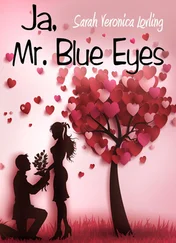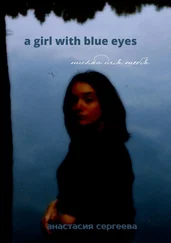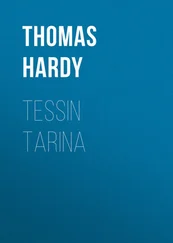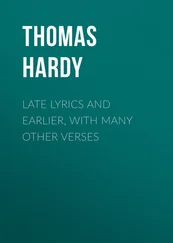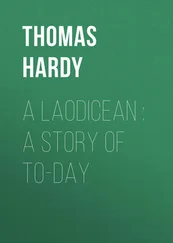Thomas Hardy - A Pair of Blue Eyes
Здесь есть возможность читать онлайн «Thomas Hardy - A Pair of Blue Eyes» — ознакомительный отрывок электронной книги совершенно бесплатно, а после прочтения отрывка купить полную версию. В некоторых случаях можно слушать аудио, скачать через торрент в формате fb2 и присутствует краткое содержание. Жанр: foreign_antique, foreign_prose, на английском языке. Описание произведения, (предисловие) а так же отзывы посетителей доступны на портале библиотеки ЛибКат.
- Название:A Pair of Blue Eyes
- Автор:
- Жанр:
- Год:неизвестен
- ISBN:нет данных
- Рейтинг книги:3 / 5. Голосов: 1
-
Избранное:Добавить в избранное
- Отзывы:
-
Ваша оценка:
- 60
- 1
- 2
- 3
- 4
- 5
A Pair of Blue Eyes: краткое содержание, описание и аннотация
Предлагаем к чтению аннотацию, описание, краткое содержание или предисловие (зависит от того, что написал сам автор книги «A Pair of Blue Eyes»). Если вы не нашли необходимую информацию о книге — напишите в комментариях, мы постараемся отыскать её.
A Pair of Blue Eyes — читать онлайн ознакомительный отрывок
Ниже представлен текст книги, разбитый по страницам. Система сохранения места последней прочитанной страницы, позволяет с удобством читать онлайн бесплатно книгу «A Pair of Blue Eyes», без необходимости каждый раз заново искать на чём Вы остановились. Поставьте закладку, и сможете в любой момент перейти на страницу, на которой закончили чтение.
Интервал:
Закладка:
The young man seemed glad of any excuse for breaking the silence. ‘Why, Miss Swancourt, what a risky thing to do!’ he exclaimed, immediately following her example by jumping down on the other side.
‘Oh no, not at all,’ replied she coldly; the shadow phenomenon at Endelstow House still paramount within her.
Stephen walked along by himself for two or three minutes, wrapped in the rigid reserve dictated by her tone. Then apparently thinking that it was only for girls to pout, he came serenely round to her side, and offered his arm with Castilian gallantry, to assist her in ascending the remaining three-quarters of the steep.
Here was a temptation: it was the first time in her life that Elfride had been treated as a grown-up woman in this way – offered an arm in a manner implying that she had a right to refuse it. Till to-night she had never received masculine attentions beyond those which might be contained in such homely remarks as ‘Elfride, give me your hand;’ ‘Elfride, take hold of my arm,’ from her father. Her callow heart made an epoch of the incident; she considered her array of feelings, for and against. Collectively they were for taking this offered arm; the single one of pique determined her to punish Stephen by refusing.
‘No, thank you, Mr. Smith; I can get along better by myself’
It was Elfride’s first fragile attempt at browbeating a lover. Fearing more the issue of such an undertaking than what a gentle young man might think of her waywardness, she immediately afterwards determined to please herself by reversing her statement.
‘On second thoughts, I will take it,’ she said.
They slowly went their way up the hill, a few yards behind the carriage.
‘How silent you are, Miss Swancourt!’ Stephen observed.
‘Perhaps I think you silent too,’ she returned.
‘I may have reason to be.’
‘Scarcely; it is sadness that makes people silent, and you can have none.’
‘You don’t know: I have a trouble; though some might think it less a trouble than a dilemma.’
‘What is it?’ she asked impulsively.
Stephen hesitated. ‘I might tell,’ he said; ‘at the same time, perhaps, it is as well – ’
She let go his arm and imperatively pushed it from her, tossing her head. She had just learnt that a good deal of dignity is lost by asking a question to which an answer is refused, even ever so politely; for though politeness does good service in cases of requisition and compromise, it but little helps a direct refusal. ‘I don’t wish to know anything of it; I don’t wish it,’ she went on. ‘The carriage is waiting for us at the top of the hill; we must get in;’ and Elfride flitted to the front. ‘Papa, here is your Elfride!’ she exclaimed to the dusky figure of the old gentleman, as she sprang up and sank by his side without deigning to accept aid from Stephen.
‘Ah, yes!’ uttered the vicar in artificially alert tones, awaking from a most profound sleep, and suddenly preparing to alight.
‘Why, what are you doing, papa? We are not home yet.’
‘Oh no, no; of course not; we are not at home yet,’ Mr. Swancourt said very hastily, endeavouring to dodge back to his original position with the air of a man who had not moved at all. ‘The fact is I was so lost in deep meditation that I forgot whereabouts we were.’ And in a minute the vicar was snoring again.
That evening, being the last, seemed to throw an exceptional shade of sadness over Stephen Smith, and the repeated injunctions of the vicar, that he was to come and revisit them in the summer, apparently tended less to raise his spirits than to unearth some misgiving.
He left them in the gray light of dawn, whilst the colours of earth were sombre, and the sun was yet hidden in the east. Elfride had fidgeted all night in her little bed lest none of the household should be awake soon enough to start him, and also lest she might miss seeing again the bright eyes and curly hair, to which their owner’s possession of a hidden mystery added a deeper tinge of romance. To some extent – so soon does womanly interest take a solicitous turn – she felt herself responsible for his safe conduct. They breakfasted before daylight; Mr. Swancourt, being more and more taken with his guest’s ingenuous appearance, having determined to rise early and bid him a friendly farewell. It was, however, rather to the vicar’s astonishment, that he saw Elfride walk in to the breakfast-table, candle in hand.
Whilst William Worm performed his toilet (during which performance the inmates of the vicarage were always in the habit of waiting with exemplary patience), Elfride wandered desultorily to the summer house. Stephen followed her thither. The copse-covered valley was visible from this position, a mist now lying all along its length, hiding the stream which trickled through it, though the observers themselves were in clear air.
They stood close together, leaning over the rustic balustrading which bounded the arbour on the outward side, and formed the crest of a steep slope beneath Elfride constrainedly pointed out some features of the distant uplands rising irregularly opposite. But the artistic eye was, either from nature or circumstance, very faint in Stephen now, and he only half attended to her description, as if he spared time from some other thought going on within him.
‘Well, good-bye,’ he said suddenly; ‘I must never see you again, I suppose, Miss Swancourt, in spite of invitations.’
His genuine tribulation played directly upon the delicate chords of her nature. She could afford to forgive him for a concealment or two. Moreover, the shyness which would not allow him to look her in the face lent bravery to her own eyes and tongue.
‘Oh, DO come again, Mr. Smith!’ she said prettily.
‘I should delight in it; but it will be better if I do not.’
‘Why?’
‘Certain circumstances in connection with me make it undesirable. Not on my account; on yours.’
‘Goodness! As if anything in connection with you could hurt me,’ she said with serene supremacy; but seeing that this plan of treatment was inappropriate, she tuned a smaller note. ‘Ah, I know why you will not come. You don’t want to. You’ll go home to London and to all the stirring people there, and will never want to see us any more!’
‘You know I have no such reason.’
‘And go on writing letters to the lady you are engaged to, just as before.’
‘What does that mean? I am not engaged.’
‘You wrote a letter to a Miss Somebody; I saw it in the letter-rack.’
‘Pooh! an elderly woman who keeps a stationer’s shop; and it was to tell her to keep my newspapers till I get back.’
‘You needn’t have explained: it was not my business at all.’ Miss Elfride was rather relieved to hear that statement, nevertheless. ‘And you won’t come again to see my father?’ she insisted.
‘I should like to – and to see you again, but – ’
‘Will you reveal to me that matter you hide?’ she interrupted petulantly.
‘No; not now.’
She could not but go on, graceless as it might seem.
‘Tell me this,’ she importuned with a trembling mouth. ‘Does any meeting of yours with a lady at Endelstow Vicarage clash with – any interest you may take in me?’
He started a little. ‘It does not,’ he said emphatically; and looked into the pupils of her eyes with the confidence that only honesty can give, and even that to youth alone.
The explanation had not come, but a gloom left her. She could not but believe that utterance. Whatever enigma might lie in the shadow on the blind, it was not an enigma of underhand passion.
She turned towards the house, entering it through the conservatory. Stephen went round to the front door. Mr. Swancourt was standing on the step in his slippers. Worm was adjusting a buckle in the harness, and murmuring about his poor head; and everything was ready for Stephen’s departure.
Читать дальшеИнтервал:
Закладка:
Похожие книги на «A Pair of Blue Eyes»
Представляем Вашему вниманию похожие книги на «A Pair of Blue Eyes» списком для выбора. Мы отобрали схожую по названию и смыслу литературу в надежде предоставить читателям больше вариантов отыскать новые, интересные, ещё непрочитанные произведения.
Обсуждение, отзывы о книге «A Pair of Blue Eyes» и просто собственные мнения читателей. Оставьте ваши комментарии, напишите, что Вы думаете о произведении, его смысле или главных героях. Укажите что конкретно понравилось, а что нет, и почему Вы так считаете.
